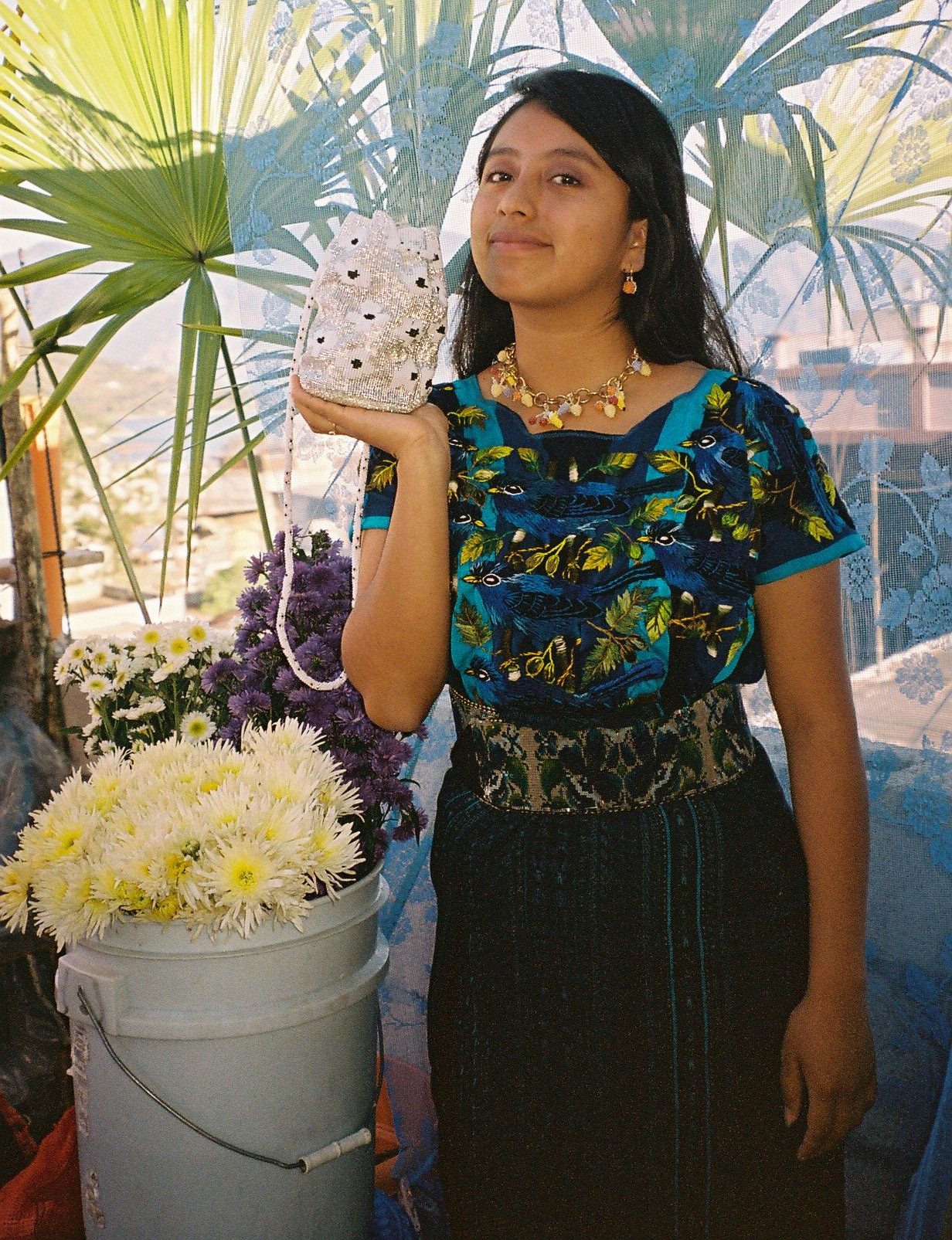Elisa Sapalú has been helping her parents make ends meet since she was 7 years old. Born and raised in Santiago Atitlán, Guatemala, Elisa and her parents are indigenous Mayans, just like the majority of Atitlán residents. Elisa learned the ancestral art of beading necklaces and bracelets, and for each paycheck earned, she would get 100 Quetzales (under $10 USD.) It was a lot to earn as a kid in her town. It also taught her the value of hard work while preserving the weaving skills passed down through her Mayan culture.
Despite the ubiquity of weaving in her indigenous community, artisan work is often synonymous with female labor. In Atitlán, women’s work is undervalued and in turn, shapes local economies of artisan handicraft. As a result, artisans in Elisa’s town are forced to accept lower wages and fewer benefits (if any) from employers who exploit their skill for higher profit margins. Elisa, now 23, wants to change that.
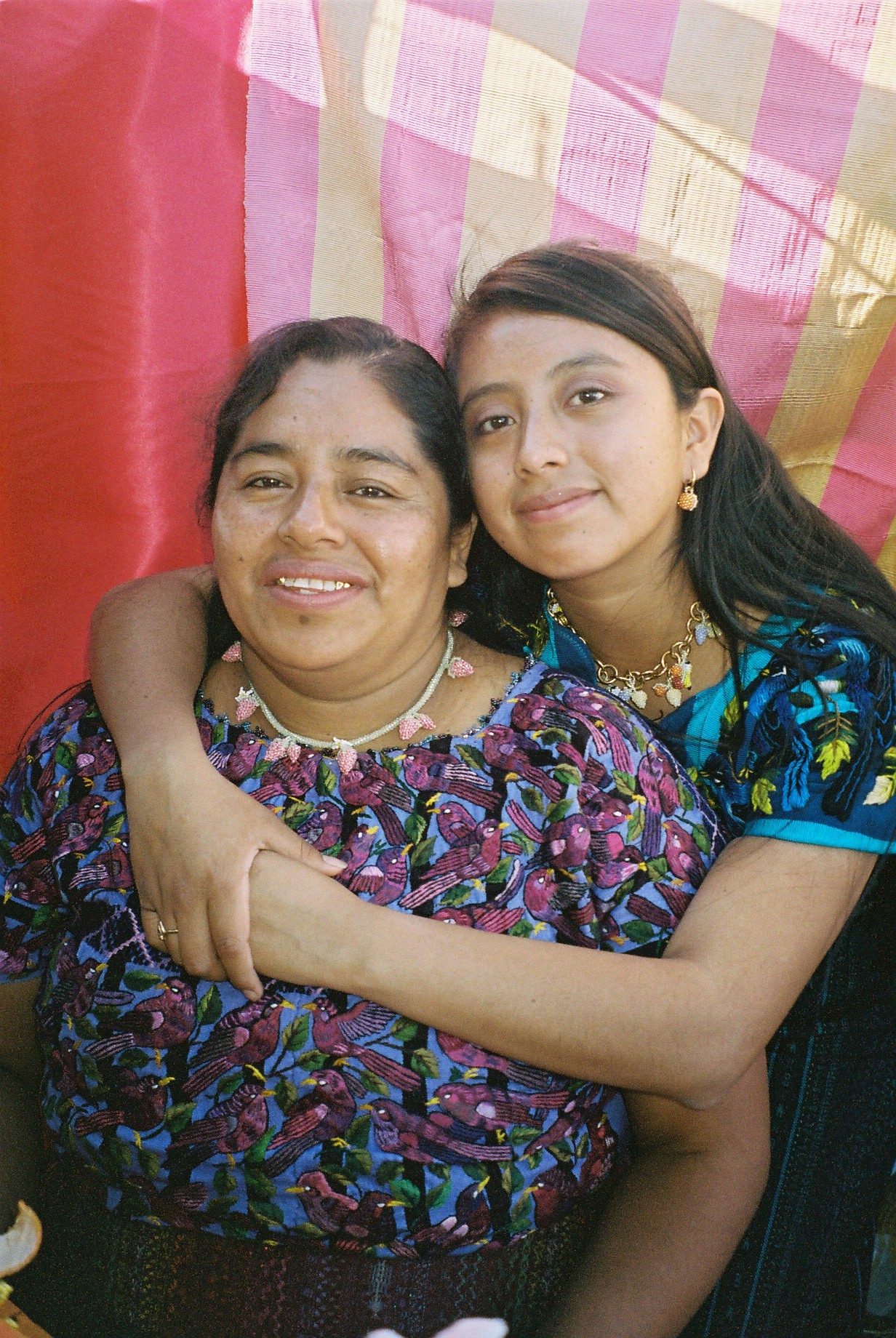
Elisa Sapalú and her mother Bernabela
Today, Elisa helps her mother Bernabela oversee a team of artisans at Pura Utz, a fairtrade, made-to-order fashion brand that’s produced in Guatemala. Pura Utz’s artisans use their traditional weaving skills to fit the tastes of luxury and modern fashion markets by creating colorful beaded handbags, jewelry and other accessories by hand in the shapes of fruits, smiley faces and yin-yang symbols, which range from $16 to $870 USD. While still a small team of 12 artisans, their products are sold at luxury stores such as Saks Fifth Avenue and Net-a-Porter-owned e-retailer Yoox, and have been featured in Vogue.
Nearby the sacred Lake Atitlán in Sololá, Guatemala, the Pura Utz team of artisans gather at Bernabela’s home from Monday to Friday, where their days start and end by collaborating with Elisa, who delegates the scope of work. The women artisans, ranging from 5-10 years Elisa’s senior, sit around a long table on an open-air patio and go through thousands of glass beads to weave their designs. Elisa prepares coffee and snacks for them throughout the day, and when work gets busy, she joins them at the table to weave.
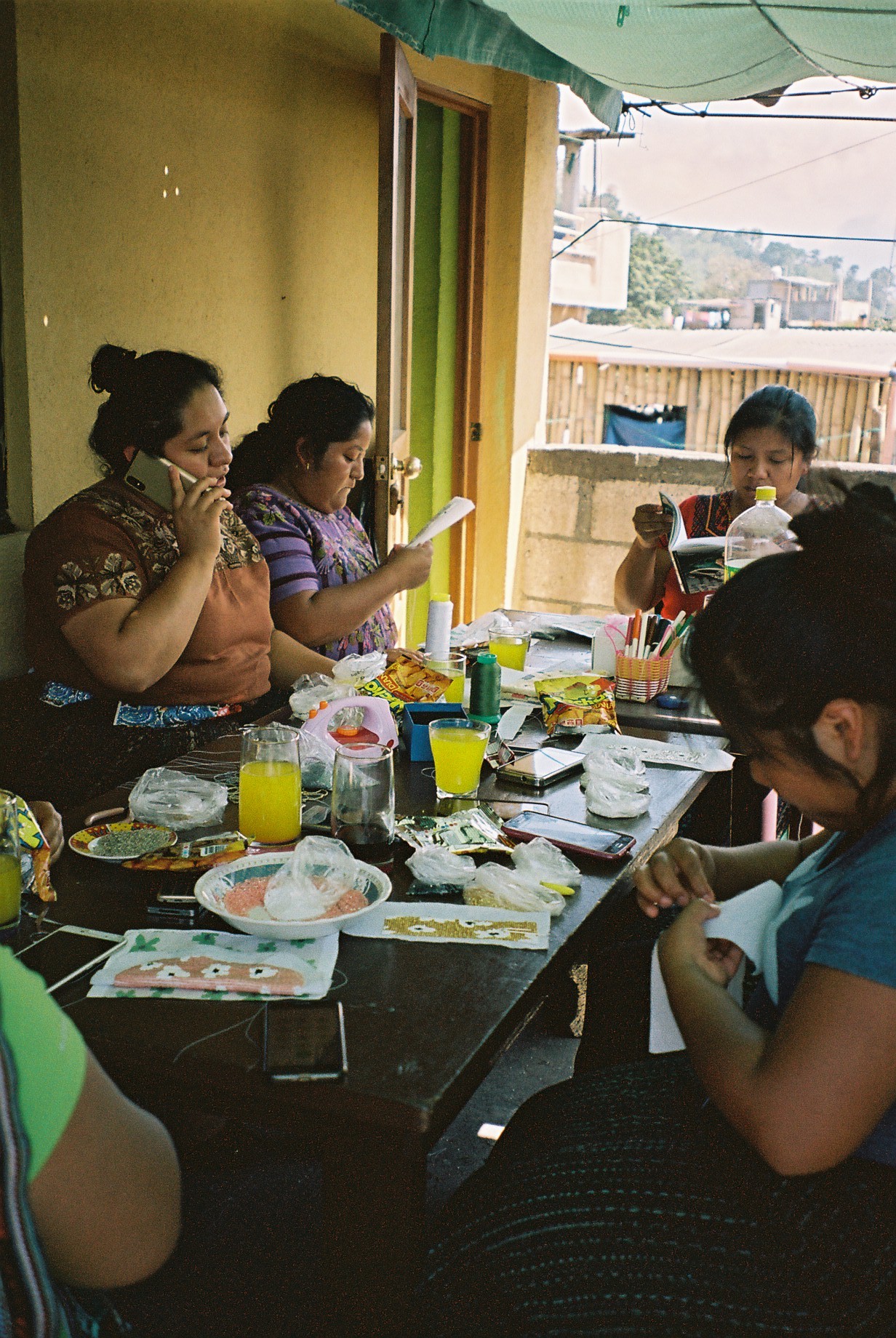
Pura Utz Team collaborating at their office in Sololá, Guatemala
Pura Utz prices are priced considerably high compared to what locals usually sell their work, Elisa tells Latina, but the price of the product is what allows them to pay the team four times the standard wage of similar artisans in their region. In Guatemala, coalitions like the Ruchajixik ri qana’ojbäl National Weavers Movement and Mujeres de Afedes organize Mayan women who advocate for better economic conditions and quality of life, especially as their labor and artistry are often exploited. Nevertheless, opposition persists and labor organizers face threats to their intellectual property, income continuity, and overall livelihood.
“It’s important for us to sell our products at this rate because we’re generating stable jobs here. The artisans make their products with a lot of love and time,” says Elisa. “That’s the biggest reason customers should support our work at Pura Utz. It’s not just a bracelet or an earring, it’s filled with our labor and love.”
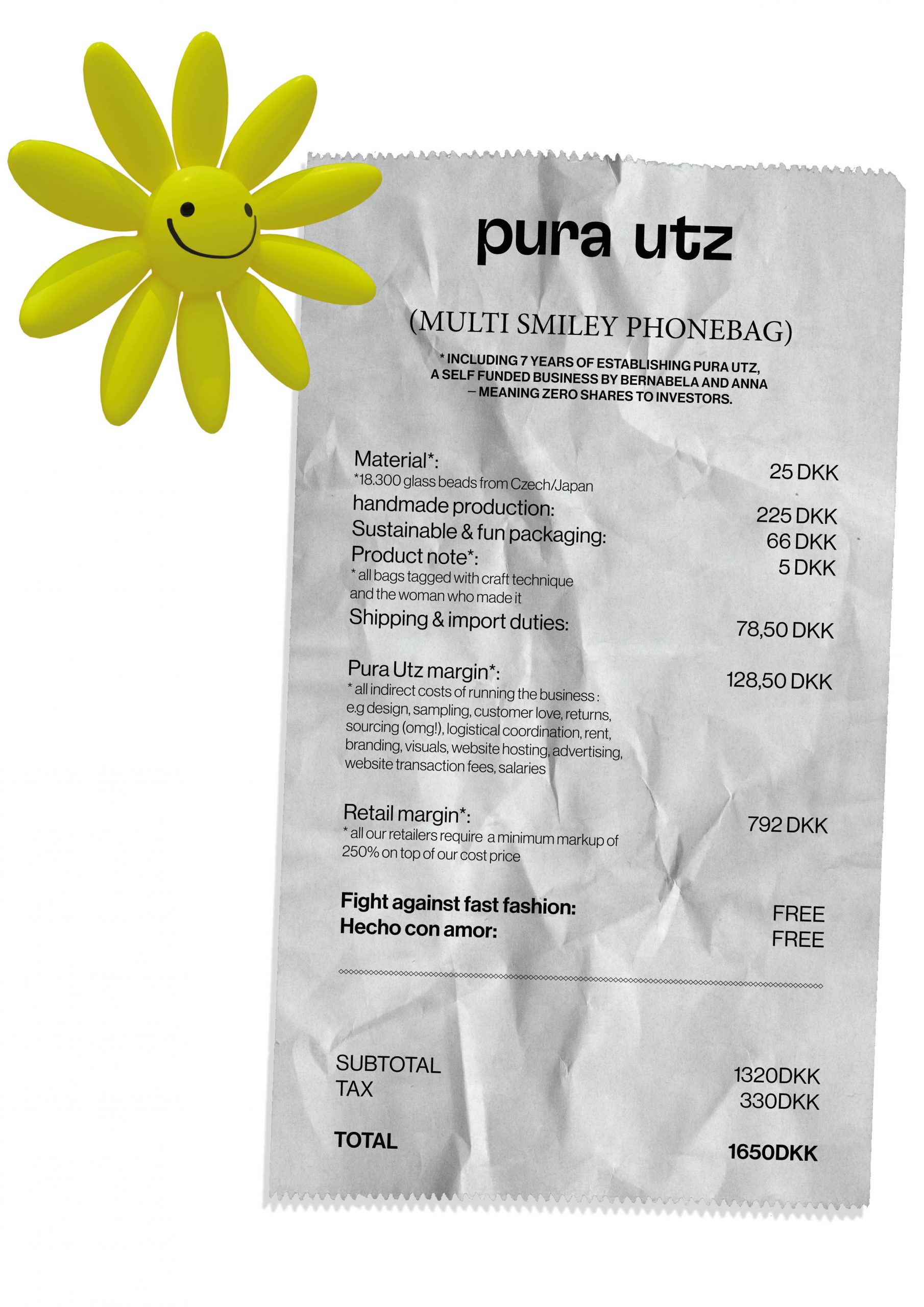
Pura Utz’s retail margins and costs to produce and distribute in Danish Krone
For every product made, the artisans are guaranteed to take home one-third of the price the item is sold for. Elisa explains that it’s important that their consumers have an idea of what each item costs so they can value their work and understand the training and skills needed to produce. In turn, pay transparency has afforded the artisans the opportunity to save money, set their own schedules, and invest in costs they might otherwise avoid like buying new clothes or upgrading their homes.
“For the artisans, this makes a huge difference because it significantly improves their financial situation,” says Elisa. “They know this first hand because they used to work in places that paid very little despite their working extremely hard.”
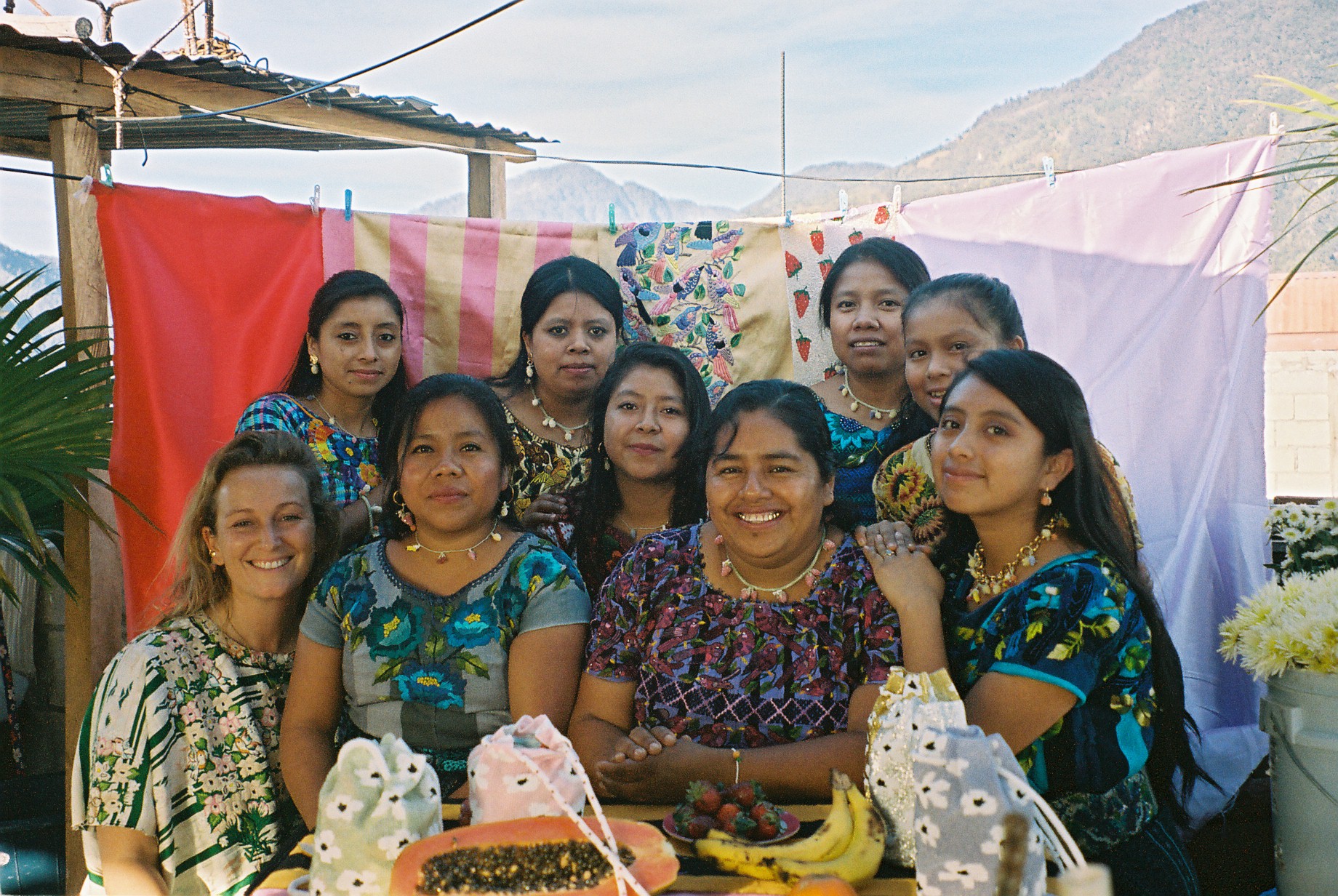
Pura Utz Team
Pura Utz was founded in 2014 by Anna Waller Andrés, who has lived and travelled to Guatemala since was a child. While traveling from Denmark as a volunteer nurse, she started working with bead designers at a non-governmental organization (NGO), where she met Bernabela. The two instantly became friends and soon after became partners and co-owners of Pura Utz. Anna manages the retail side of the business in Copenhagen, Denmark.
After graduating prep school a few years ago (the equivalent to high school in the U.S.), Elisa joined Pura Utz as their head of operations. When she’s not squeezing in her time for her college assignments — she is the first in her family to ever go to school and now attend university — Elisa leads all of the financial and operational aspects of Puta Utz including payroll, assigning tasks, placing orders for materials, and shipping off the final products to Denmark.
Elisa often offers behind-the-scenes looks at Pura Utz’s artisans via Instagram stories. Even if you’re thousands of miles away, it’s easy to feel immersed in the work as artisans chat and joke with one another in Tzʼutujil, a Mayan language native to their region. When Elisa first started posting their work, she says the team was quite camera shy.
View this post on Instagram
Eager to show the world the kind and hardworking women who make beaded fruits sprout from the tips of their weaving needles, Elisa shared her own lightheaded sense of humor and encouraged the team to be themselves. Supporters on social media have now come to know the artisans like Julia, Rebeca, Sara, Yenni, Isabel and Ester, who share stories and laughter with each other even while laser focused on their bead work.
“The people who buy our products value the effort of our women artists, especially as they get to know a little bit about our life and work through photos, tagged posts, and Instagram stories,” says Elisa. “It’s thanks to their purchases that we generate work and can provide our team a better quality of life. That’s been the key to our success.”
